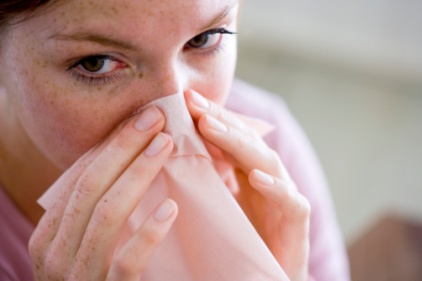 The World Health Organization (WHO) is concerned that in order to conduct certain kinds of research into the H5N1 influenza virus, scientists could be creating newer and more dangerous forms of the virus that could ultimately pose a risk to public health.
The World Health Organization (WHO) is concerned that in order to conduct certain kinds of research into the H5N1 influenza virus, scientists could be creating newer and more dangerous forms of the virus that could ultimately pose a risk to public health.
While the WHO did concede that studies on the risks posed by the H5N1 virus should proceed, it reminded scientists that they must abide by the Pandemic Influenza Preparedness (PIP) Framework introduced in May of 2011 and adopted by all WHO member states
"H5N1 influenza viruses are a significant health risk to people for several reasons," according to a statement released by the organization. "Although this type of influenza does not infect humans often, when it does, approximately 60% of those infected die. In addition, because these viruses can cause such severe illness in people, scientists are especially concerned that this type of influenza could one day mutate so it spreads easily between people and causes a very serious influenza pandemic.
"Research which can improve the understanding of these viruses and can reduce the public health risk is a scientific and public health imperative. In order to enable those public health gains, countries where these viruses occur should share their influenza viruses for public health purposes while countries and organizations receiving these viruses should share benefits resulting from the virus sharing. Both types of sharing are on equal footing and equally important parts of the collective global actions needed to protect public health."
WHO says that some research can generate more dangerous forms of the virus than those which already exist, which is potentially risky. "Therefore such research should be done only after all important public health risks and benefits have been identified and reviewed, and it is certain that the necessary protections to minimize the potential for negative consequences are in place."
The PIP guidelines cover the sharing of influenza viruses with pandemic potential and the resulting benefits. "One specific requirement of this Framework, which pertains to influenza viruses of pandemic potential, and is in keeping with best scientific practice, is for laboratories receiving them through WHO's Global Influenza Surveillance and Response System (GISRS) to collaborate with, and appropriately acknowledge, scientists in countries where the virus originated when initiating research.
"WHO recognizes that the scientists who led the work of the new studies received their virus samples from the WHO Global Influenza Surveillance Network (GISN), which preceded GISRS, and before negotiations on the new PIP Framework began. However, now that the Framework has been adopted by all WHO Member States, WHO considers it critically important that scientists who undertake research with influenza viruses with pandemic potential samples fully abide by the new requirements.
"Since the PIP Framework represents a major step forward and was agreed upon only after several years of difficult negotiations, WHO stresses that this H5N1 research must not undermine this major public health achievement. WHO will work with Member States and other key parties to ensure scientists understand the new requirements that have been agreed to with the Framework."



